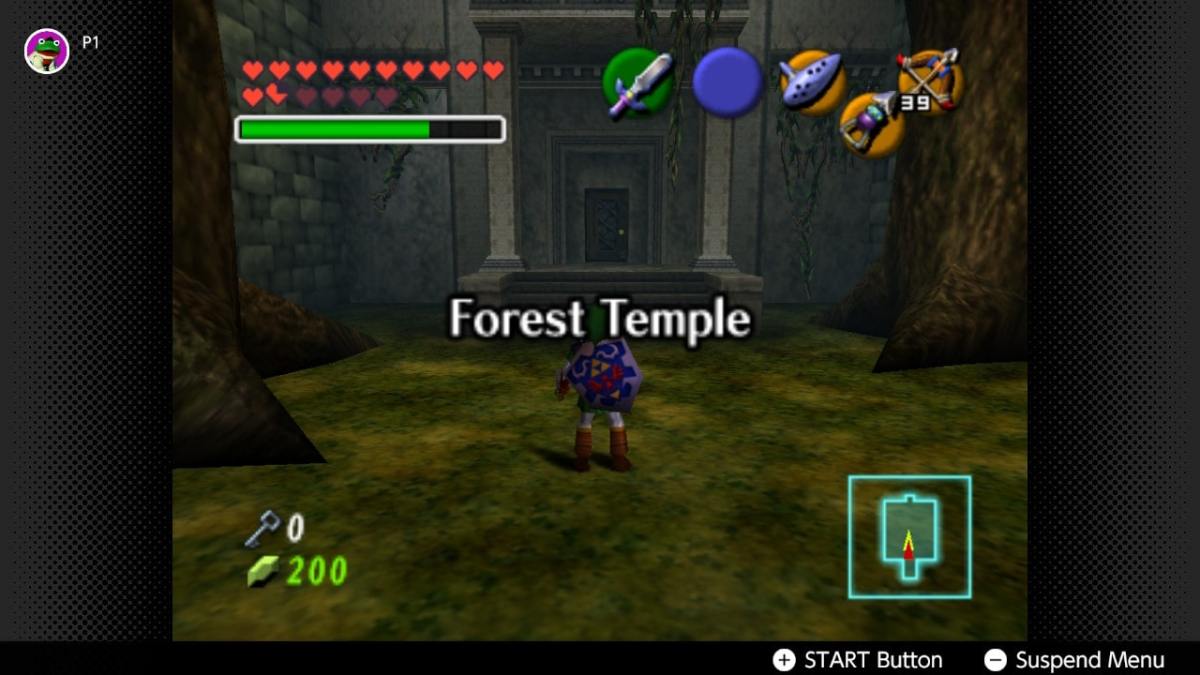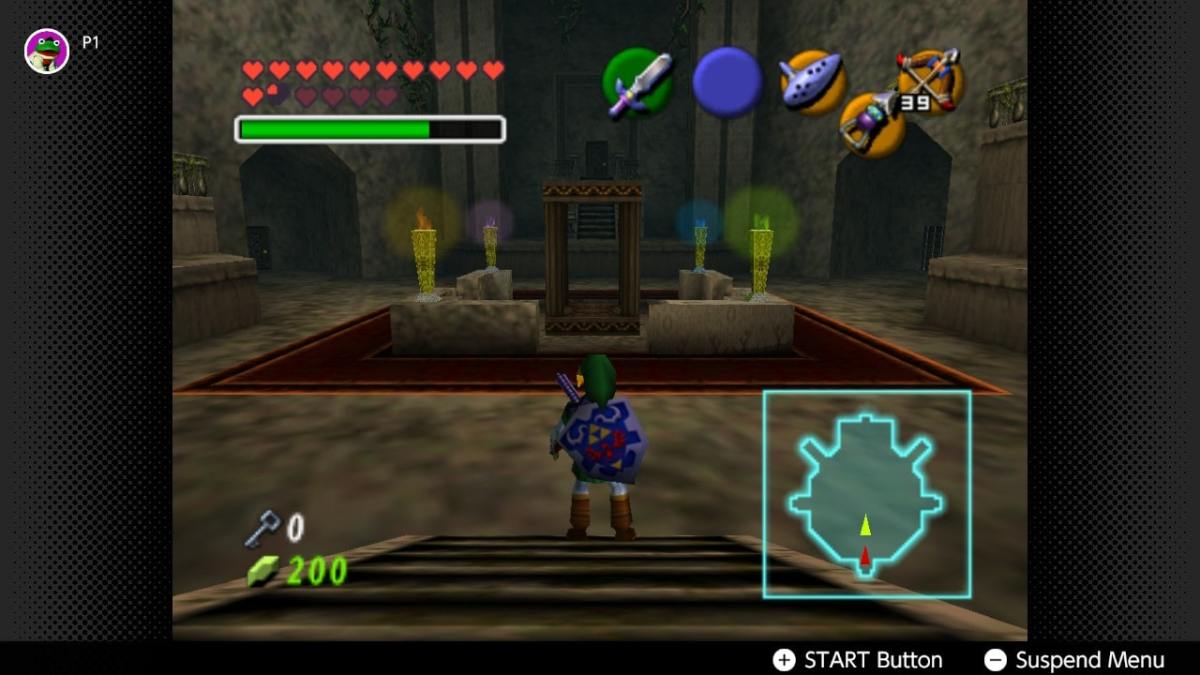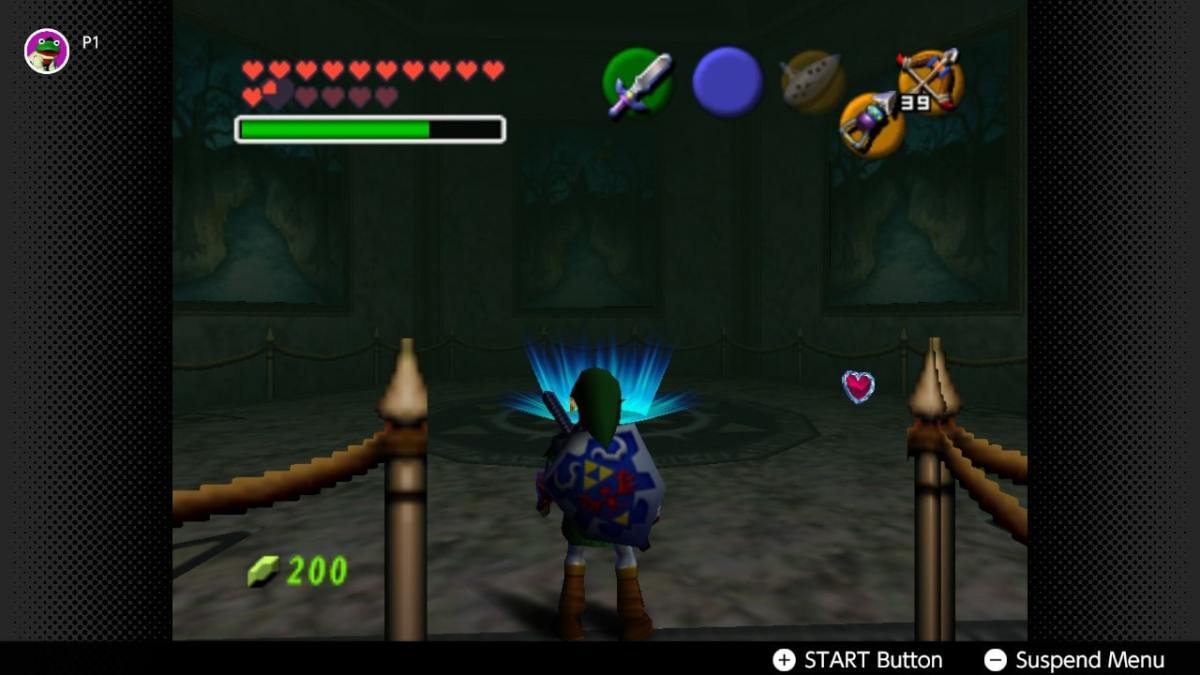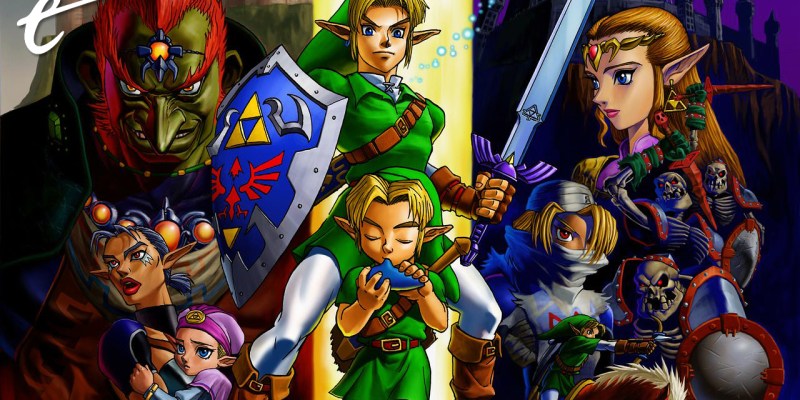The Legend of Zelda has been my favorite video game franchise for pretty much my whole life. With Tears of the Kingdom finally upon us, I decided to embark on a journey over the past year to replay as many Zelda games as I could and see if this crash course through gaming history could help me glean any new insight into a series that has meant so much to me. I’ll be relaying my thoughts through a set of short features highlighting one thing that stood out to me from each game.
Today’s game – 1998’s The Legend of Zelda: Ocarina of Time.
If a Zelda game is only as good as its dungeons, then 1998’s The Legend of Zelda: Ocarina of Time earns its title of masterpiece with ease. Ocarina of Time being the series’s first foray into the wild blue yonder of 3D gaming, Nintendo managed to take everything that we loved about the Zelda formula and expertly translate it into a new dimension.
Just uttering the words “Zelda dungeon” causes an immediate flood of thoughts, memories, preferences, revelations, and design decisions to come forward. When we talk about Zelda games, it’s almost always one of the first things that’s brought up. How are the dungeons? What’s your favorite dungeon? What’s your least favorite? Do you hope Tears of the Kingdom brings them back?

Prior to Breath of the Wild redefining the formula, dungeons served as a consistent, meal-sized challenge along any of Link’s adventures. They were equal parts mile marker, story beat, and mountain for the player to climb. But for me, the best Zelda dungeons have always reminded me of something firmly rooted in our real world – the entire arc of a school course, from first-day jitters to final exams. And no dungeon exemplifies that quite as well as the Forest Temple.
Right from the opening title screen, which remains a stone-cold classic, Ocarina of Time plants its flag in a very specific mood. The melancholy music laid over sweeping shots of Hyrule Field giving way to a solitary adult Link riding Epona was a beautiful thing in 1998, and it remained every bit as impactful during my recent replay. This is a game about a lot of things, including our bond with nature and a loss of innocence, (For more on those themes, check out Good Blood’s excellent video essay) and while the opening title screen has that in spades, this is really highlighted in Link’s first dungeon challenge as an adult.
As I mentioned before, the best Zelda dungeons unfold like you’re taking a class throughout the course of a semester. You enter with an equal mix of wide-eyed wonder and trepidation, not knowing exactly what’s in store for you. Daily lessons come in the form of the map layout, puzzle design, and enemy patterns. A midterm generally occurs just before or after you’ve gained whatever dungeon item this specific place revolves around. And it all culminates in a final exam, testing you on the knowledge and skill that you’ve accumulated throughout the course of this dungeon.
While Ocarina’s first three dungeons – Deku Tree, Dodongo’s Cavern, and Jabu-Jabu’s Belly – are places formed from nature, the Forest Temple is our first clearly man-made dungeon of the game. The dark and ominous mansion hidden deep within the Lost Woods is filled with those literal and metaphorical ghosts of the seven years of his life that Link has missed. And the mansion’s central foyer acts as your classroom for this semester of lessons — a place you’ll be revisiting time and time again during your mission to destroy the four Poes and light the room’s four flames, granting you entrance to the final boss chamber.

The Forest Temple falls in place right at a crucial moment in Link’s growing arsenal. You gain access to it shortly after you acquire the hookshot, and within the dungeon itself, you discover the bow. These two are both top-tier Zelda items no matter which game they appear in, and doubly so within the new 3D and particularly vertical world of Ocarina of Time.
The Forest Temple tests you in a variety of ways that all feed into the supernatural vibes of the creepy dungeon. Its exterior courtyards contain climbing challenges teeming with spiders, and it’s the first dungeon in the game to introduce small keys into the mix, forcing you to rely heavily on spatial awareness. This is only amplified by trick hallways that bend in unnatural ways and rooms where you need to find safe gaps in a falling ceiling. These all support the main challenge of the aforementioned Poes that you need to hunt down with your newfound bow.
This culminates in the Forest Temple’s final exam – a memorable showdown with Phantom Ganon. This boss encounter makes excellent use of the game’s third dimension by necessitating that you keep your head on a swivel as you try to figure out which painting the spectral rider will emerge from. Once you spot that, you’re tested on how quickly you’ve taken to your new bow, as you only have a few moments to get a shot in.

The Forest Temple epitomizes the game’s melancholy vibes that stem from growing up in an instant and losing the innocence of your childhood. It’s a showcase for just how dark things have gotten in Hyrule over the past seven years – a change that’s only highlighted by the creepy, unnerving music from the legendary Koji Kondo. The world has changed and not for the better. Rounded edges are now jagged, and the pristine blue sky of your childhood has given way to deep, ominous clouds. But through it all, Link remains a hero.
Apart from the expert design, I love the thematic relevance of this first adult dungeon. While Link’s macro goal at this point in the game is to rescue the Sages to help defeat Ganondorf, his trek into the Forest Temple is more personal.
After seven years, Link is set to reunite with Saria, his childhood best friend from the Kokiri Forest. While this stretch of time flew by in an instant for Link as he pulled the Master Sword, Saria and the rest of Hyrule had to live through the downfall of the kingdom minute by agonizing minute. While the Hero of Time slept, the rest of Hyrule suffered. It’s a theme that would be revisited in Breath of the Wild, and one that hits hard, even on a replay all these decades later.
One of the remarkable things about Ocarina of Time is that I could’ve centered this piece around any number of its incredible dungeons. The opening journey into the Deku Tree will always stick with me for how much it rewired my brain to play Zelda in 3D. The Spirit Temple leans into the game’s core concept of two separate time periods in surprising ways. And the infamous Water Temple is full of ingenious puzzle design that stands out even taller in the less-cumbersome 3DS version of the game. But at the end of the day, when we talk about Zelda dungeons as a whole, Ocarina of Time’s Forest Temple is inevitably the one my mind wanders back to time and time again.
Check out other entries in this ongoing Zelda series below.
- The Legend of Zelda’s Secret Weapon Is Trust
- Zelda II: The Adventure of Link Is a Bold and Important Failure
- In A Link to the Past, One Moment Made Zelda Feel Truly Magical
- Link’s Awakening Shows There’s More to Zelda Than Saving the World
- Majora’s Mask Isn’t Just a Video Game
- Wind Waker’s Greatness Proves That Epona Kinda Sucks
- The Best Dungeon in Twilight Princess Finds Love in a Hopeless Game
